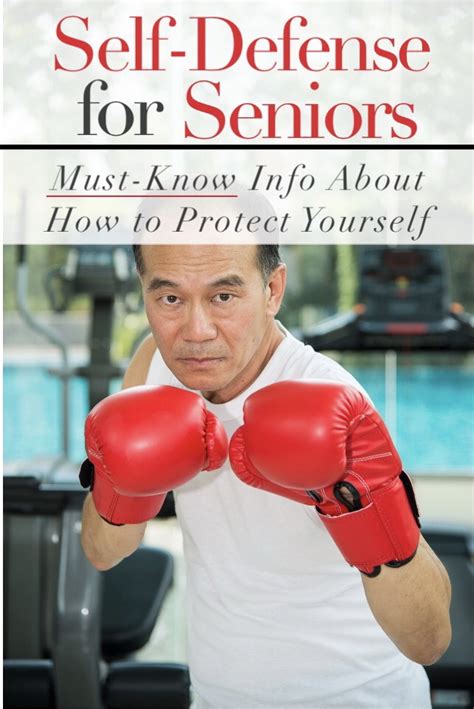Doc Truyen: Self-Defense for Seniors – Staying Safe and Strong
For seniors, maintaining independence and safety is paramount. While aging gracefully is a beautiful process, it's crucial to acknowledge that physical vulnerability can increase with age. This is where self-defense training, specifically tailored for seniors, becomes invaluable. Doc Truyen, a fictional program (as "Doc Truyen" doesn't appear to be an established self-defense program), represents the concept of practical self-defense strategies designed to empower older adults. This article explores the importance of self-defense for seniors and details techniques adaptable to various physical capabilities.
Why Self-Defense is Crucial for Seniors
Seniors are often targeted by criminals due to perceived vulnerability. Self-defense training isn't about becoming a martial arts expert; it's about building confidence, awareness, and practical skills to deter attacks and, if necessary, escape dangerous situations. The benefits extend beyond physical protection:
- Increased Confidence: Learning self-defense techniques boosts self-esteem and reduces anxiety about personal safety.
- Improved Physical Fitness: Many self-defense programs incorporate exercises that enhance strength, balance, and flexibility—crucial elements for maintaining overall health in later life.
- Enhanced Situational Awareness: Training emphasizes recognizing potential threats and avoiding dangerous situations altogether.
- Greater Independence: Feeling safer and more capable allows seniors to maintain their independence and participate fully in their communities.
What a Doc Truyen-Style Program Might Include
A hypothetical "Doc Truyen" program would prioritize practicality and adaptability. It would focus on techniques seniors can realistically learn and execute, considering limitations in strength, flexibility, and mobility. Here are some key elements:
- Awareness and Avoidance: This is the most crucial aspect. Learning to recognize potential threats, maintaining awareness of surroundings, and avoiding risky situations is the best form of self-defense.
- Simple Striking Techniques: Focus on strikes that utilize minimal physical exertion but maximize impact, such as palm strikes, elbow strikes, and knee strikes. These are easier to learn and execute than complex martial arts moves.
- Joint Locks and Pressure Points: Certain joint locks and pressure point techniques can be effective without requiring significant strength, offering a way to disable an attacker temporarily.
- Ground Defense: Learning how to protect oneself if a fall occurs is vital. This might involve techniques to create space or minimize injury.
- Self-Defense Tools (canes, umbrellas): Everyday items can be adapted for self-defense purposes. Proper training on using these tools safely and effectively is crucial.
- Verbal De-escalation: Learning to use assertive communication to de-escalate a potentially violent situation is a powerful self-defense tool.
Addressing Specific Concerns: Frequently Asked Questions
H2: What if I have limited mobility or health conditions?
A well-designed senior self-defense program will accommodate various physical limitations. Modifications and adaptations will be made to ensure techniques are safe and achievable for individuals with arthritis, limited range of motion, or other health conditions. The instructor will work with each participant to develop a personalized program.
H2: Is it too late to learn self-defense at my age?
It's never too late to learn self-defense. The program should focus on practical, easily learned techniques, rather than demanding high levels of physical fitness. The mental benefits alone—increased confidence and situational awareness—are valuable at any age.
H2: What kind of equipment is needed?
Generally, no special equipment is necessary. Comfortable clothing and supportive footwear are recommended. Some programs might use training tools like focus mitts, but these aren't always required.
H2: How often should I train?
The frequency of training depends on individual needs and goals. Regular practice, even a few times a week, is important for retaining skills and building confidence. Consistency is key.
H2: Where can I find a suitable self-defense program?
Look for programs specifically designed for seniors or older adults. Check with local senior centers, community colleges, YMCA/YWCA facilities, and martial arts studios. Ask about instructor qualifications and the curriculum.
Conclusion: Empowering Seniors Through Self-Defense
While the term "Doc Truyen" is fictional, the importance of self-defense training for seniors is very real. By focusing on practical techniques, building confidence, and enhancing awareness, senior citizens can significantly improve their safety and maintain their independence. Remember that self-defense is not just about physical skills but also about cultivating a proactive approach to personal safety. Finding a program that suits your individual needs and abilities is the first step towards a safer and more confident future.

